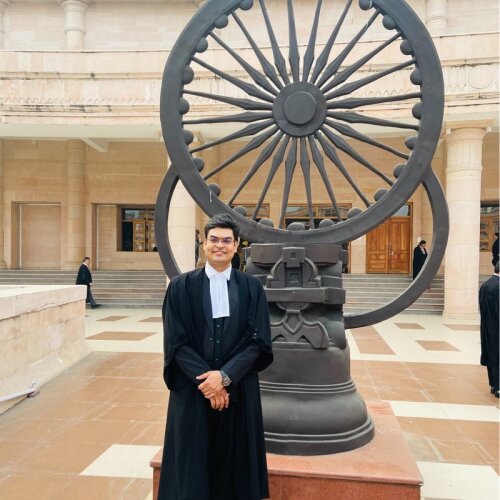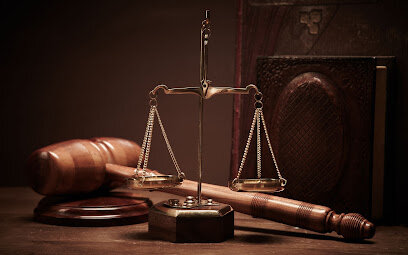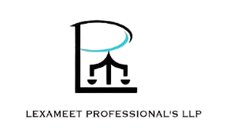Best Whistleblower & Qui Tam Lawyers in Lucknow
Share your needs with us, get contacted by law firms.
Free. Takes 2 min.
List of the best lawyers in Lucknow, India
About Whistleblower & Qui Tam Law in Lucknow, India
In India, while the specific term 'Qui Tam' is not widely used, there are various legislations in place aimed at protecting whistleblowers. Whistleblower protection in India mainly falls under the Whistleblowers Protection Act, 2014. It provides a mechanism to investigate alleged corruption and misuse of power by public servants and also protects anyone who exposes alleged wrongdoing in government bodies, projects and offices. The act aims to protect whistleblowers, avoid retaliation in terms of physical harm or undue pressure and encourage the exposure of mismanagement or corruption.
Why You May Need a Lawyer
Despite having this law, exposing corruption and dealing with the resulting legal matters can be complex and intimidating in India especially if the person or entity implicated is powerful. This is why legal help becomes necessary. You may need a lawyer to help interpret the law, guide you through the process, ensure your rights are upheld, and to represent you during any resulting proceedings. Also, in cases of retaliation or victimization, competent legal advice is invaluable.
Local Laws Overview
The fundamental legislation related to whistleblowing in India is the Whistleblowers Protection Act, 2014. This act covers public servants in India and does not cover the private sector. It provides provisions for secure mechanisms to reveal cases of corruption or misuse of power within public offices. However, this act does not grant immunity from criminal charges that could result from the disclosure. Also noteworthy is that whistleblowers are obligated to prove their revelations.
Frequently Asked Questions
What protection do whistleblowers have by law in Lucknow?
The Whistleblowers Protection Act, 2014 in India provides protection to whistleblowers from any form of victimization following a revelation but does not grant any criminal immunity.
Does the Whistleblower Protection Act apply to the private sector?
The Whistleblowers Protection Act, 2014 currently only applies to the public sector. It does not provide any coverage or protection for private sector employees.
Are there any exceptions to what can be reported as a whistleblower?
Yes, the act prohibits revelations that affect the sovereignty and integrity of India, security of the state, friendly relations with foreign states, public order, decency, or morality.
Can a lawyer represent me in these matters?
Yes, a lawyer can provide guidance, represent you in any legal proceedings, and help safeguard your rights throughout the process.
What can I do if I experience retaliation after blowing the whistle?
If you experience retaliation, you should seek legal assistance. A lawyer will help guide you through your options and the process for seeking justice.
Additional Resources
The main resource for whistleblowers is the Central Vigilance Commission (CVC), an autonomous body responsible for promoting fairness, accountability and integrity in administration, giving recommendations to authorities and dealing with complaints from whistleblowers.
Next Steps
If you need legal assistance in whistleblower-related issues, you should reach out to a competent lawyer specialized in such matters. They will help you understand your rights, guide you through the process, and represent you in any legal proceedings.
Lawzana helps you find the best lawyers and law firms in Lucknow through a curated and pre-screened list of qualified legal professionals. Our platform offers rankings and detailed profiles of attorneys and law firms, allowing you to compare based on practice areas, including Whistleblower & Qui Tam, experience, and client feedback.
Each profile includes a description of the firm's areas of practice, client reviews, team members and partners, year of establishment, spoken languages, office locations, contact information, social media presence, and any published articles or resources. Most firms on our platform speak English and are experienced in both local and international legal matters.
Get a quote from top-rated law firms in Lucknow, India — quickly, securely, and without unnecessary hassle.
Disclaimer:
The information provided on this page is for general informational purposes only and does not constitute legal advice. While we strive to ensure the accuracy and relevance of the content, legal information may change over time, and interpretations of the law can vary. You should always consult with a qualified legal professional for advice specific to your situation.
We disclaim all liability for actions taken or not taken based on the content of this page. If you believe any information is incorrect or outdated, please contact us, and we will review and update it where appropriate.












